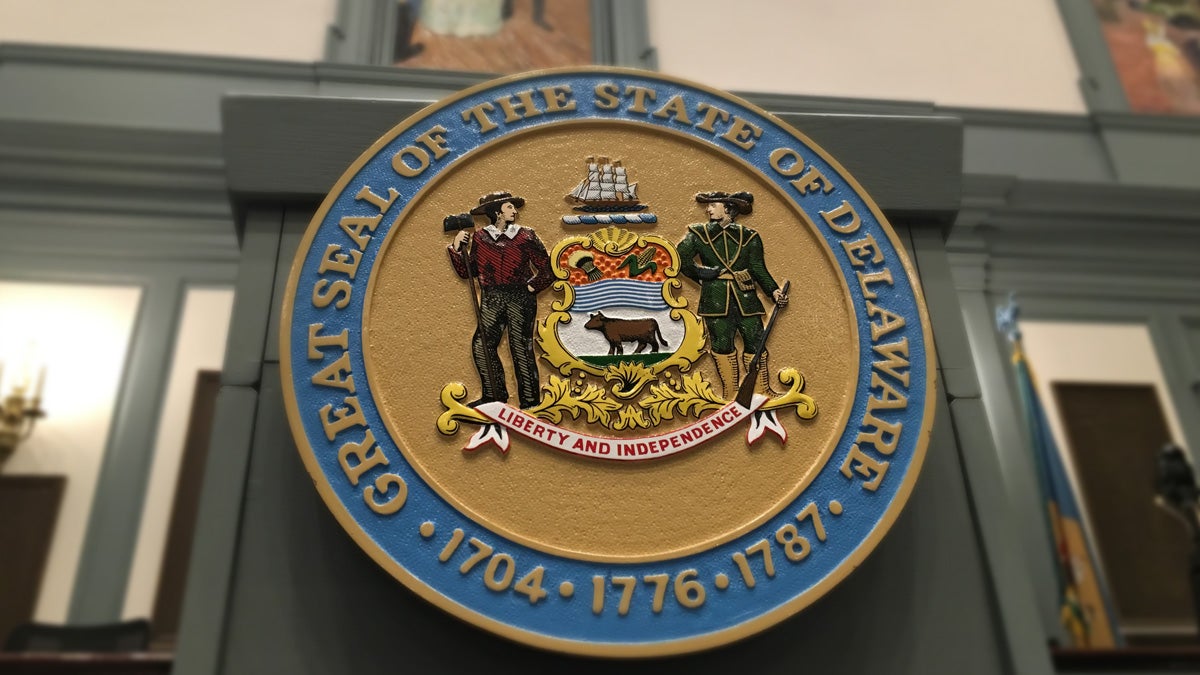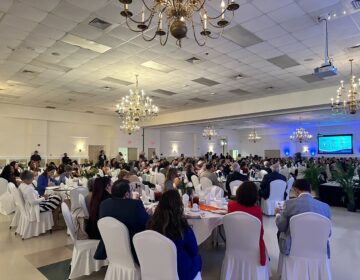Two days late, but lawmakers, governor hail Delaware way for producing fiscal year 2018 budget

Delaware has a new $4.1 billion dollar budget. Governor John Carney signed it at 1:16am Monday. There was no hike in the personal income tax, and non-profit groups get most of their funding restored.
Delaware missed its June 30th budget deadline for the first time since Pete duPont was governor in 1977. Frustrated lawmakers adjourned early Saturday morning with most of the public wondering how Democrats and Republicans were going to resolve their differences.
Negotiations went on all day Saturday, so when lawmakers were told to come back at 1pm Sunday they began what was called an extraordinary session. What it produced was a series of taxes and fees that not only balanced a $400 million deficit, but restored cuts.
What goes up?
The real estate transfer tax is going up to 4%. Currently, the state and the counties split the 3% 50-50. Now the state will keep the additional money. As the idea started to spread around Legislative Hall in whispers, opposition to the idea started to grow from folks like Bruce Plumber of the Delaware Association of Realtors. He’s a realtor in Rehoboth and said the hike was going to hit the industry hard.
The measure easily passed the house, but ran into opposition from Senator Robert Marshall, D-Wilmington. He said first time home buyers should be exempt because most buyers don’t have extra cash to put into a home. Senator Greg Lavelle, R-Sharpley, who was in on the negotiations to fix the budget agreed. But, he said lawmakers should pass the tax now and address those concerns in January when they come back into session.
Tobacco and alcohol products will be taxed at a higher rate. A pack of cigarettes will now include $2.10 in taxes. There are also taxes added to products associated with vaping and smokeless tobacco. Alcohol has additional fees for beer, wine, and distilled spirits.
The third part of the budget package was the bond bill. Lawmakers in both parties applauded the transparency attached to that negotiation. The bond bill is used for road improvements and other construction projects like schools.
But the big winner were non-profits. The grant in aid bill was restored to 2017 levels, minus 20%. The Joint Finance Committee came into session just before 5:30 to announce the restoration of funds. That was a relief to many groups from volunteer fire fighters to senior citizen organizations. JFC Co-chairs, Senator Harris McDowell, D-Wilmington and Rep. Melanie George-Smith, D-Bear praised the move saying a 20% cut was better than no money, which is what the groups were left with Saturday morning.
Again in the senate there was a lone dissenting voice. Senator Bryant Richardson, R-Laurel, complained that Planned Parenthood should not be funded through such a plan.
Start of something or a missed opportunity
Governor Carney said, “we missed an opportunity” when asked to react to the new budget. He felt the personal income tax on wealthier Delawareans would have gone a long way to funding future budgets.
“We’re going to be in the same situation next May, although it won’t be as bad as this year unless the economy really goes south,” he said.
Minority leader Senator Greg Lavelle, R-Sharpley, said the republicans compromised on their idea of prevailing wage. That’s applied to state construction jobs. It allows for fluctuation in what wages are paid. Republicans have said it would make those jobs more competitive and save the state money. However, he said promises were made to study the idea of school consolidation and what was described as “budget smoothing.”
Senator Colin Bonini, R-Dover South, credits State Treasurer Ken Simpler with proposing the idea that is basically a rainy day fund. He said other states have tried it. When revenues are good it puts a cap on spending, so when the economy goes down there will be money to use to fill any shortfall.
House Speaker Pete Schwartzkopf, D-Rehoboth, said the compromises made were done on both sides. Lavelle praised the speaker at the bill signing ceremony saying they spent a lot of time on the phone having some very open conversations about the issues.
And in the end, all sides said the Delaware way worked. Carney made a point of saying, “I’ve spent the last 6 years in Washington and I know what doesn’t work.” He added that this was progress towards a better approach to funding government.
The governor was asked if he thought anything could have been done differently. He said he would have to think about it. When asked how he would grade his performance during the session. He said, “a B.”
Waiting for the copier
Most of the afternoon was spent with people walking around the hall asking “do you think we’ll get a deal?” “We hope so,” was the response. And while the session took a little under 4 hours to complete in both chambers, the biggest delay was shown on the sign outside the state printing room: “Room closed for 2 hours while legislative printing takes place. Sorry for the inconvenience.
As a point of full disclosure. WHYY’s Delaware operation receives money through grant-in-aid.
WHYY is your source for fact-based, in-depth journalism and information. As a nonprofit organization, we rely on financial support from readers like you. Please give today.




